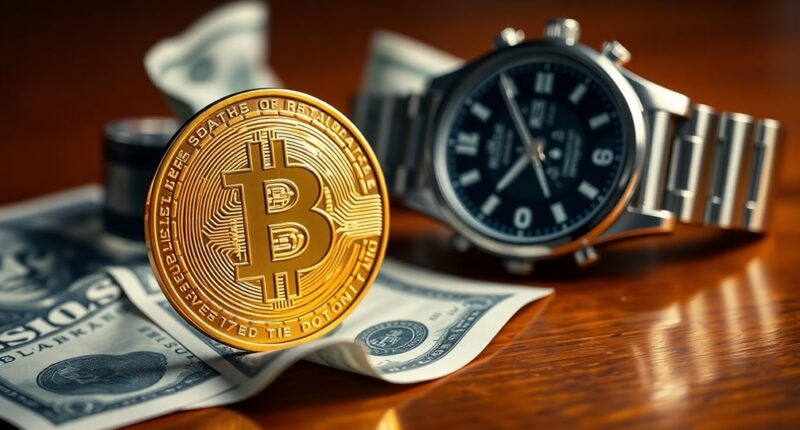You might be surprised to hear Kiyosaki's latest stance on Bitcoin. He believes it's a more secure investment than the US dollar, especially with inflation concerns looming. While many still trust traditional currency, Kiyosaki argues that Bitcoin's decentralized nature protects it from government intervention. So, what does this mean for your investment strategy? Exploring Kiyosaki's insights could change your perspective on where to place your financial bets.

When considering the security of Bitcoin, Robert Kiyosaki highlights both its potential and its risks. You might find his perspective intriguing, especially since he emphasizes how Bitcoin might actually offer more security than the US dollar. With concerns about inflation eroding the dollar's purchasing power, Kiyosaki suggests that Bitcoin's decentralized nature positions it as a viable alternative asset.
While some people see Bitcoin's volatility as a risk, others view it as an opportunity for growth, especially amid fears about the dollar's stability. The idea of decentralization is key here. Unlike traditional currencies, which are subject to government policies and central bank manipulations, Bitcoin operates independently. This independence may reduce reliance on a system that can be influenced by sanctions or economic instability. Additionally, as the US dollar accounts for over 58% of global foreign exchange holdings, this dominance highlights the potential risk of relying solely on fiat currencies.
You might appreciate how this could provide a more secure financial future, especially in an era of high inflation. Kiyosaki's mention of Gresham's Law reinforces this notion; as bad money drives out good, Bitcoin could emerge as a stronger asset in a declining dollar economy.
Privacy features of Bitcoin also come into play. While transactions are pseudonymous and can be traced, they still offer a level of security that traditional banks can't match. However, it's essential to acknowledge the risks; Bitcoin exchanges have faced hacking incidents more frequently than conventional banks. This reality highlights the importance of improving security measures for wallets and exchanges to protect your investments.
Market volatility is another factor to consider. Bitcoin's price can swing wildly, which might make it a risky store of value compared to more stable assets like gold. But this volatility can also attract investors who seek high returns. As more individuals and corporations adopt Bitcoin, its market security strengthens, and investor confidence grows. You can see why Kiyosaki believes in Bitcoin's potential as a secure alternative.
Finally, the evolving regulatory landscape around cryptocurrencies also influences their security perception. As regulations change, they could impact Bitcoin's stability and acceptance. With all these factors in mind, Kiyosaki's increasing Bitcoin stash reflects a belief that it offers more security than the traditional fiat currencies.
If you're considering entering the cryptocurrency space, Kiyosaki's insights might just guide you toward a more secure financial future.









